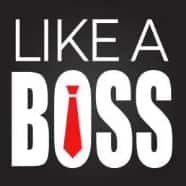Recently, Khaitan & Co, which has roots in Kolkata, became the first law firm in India to cross the 150-partner mark . The man behind the firm's rapid rise since its move to Mumbai is its key partner Haigreve Khaitan, the son of legal luminary Pradip Kumar Khaitan, popularly called "Pintu" Khaitan in corporate circles. The soft spoken Haigreve spearheads the corporate/M&A and private equity practice and is admired by clients and peers for his deal making skills, old world manners and humility. When he is not stitching up marque transactions, you can find Haigreve playing badminton and board games with his two daughters, improving his swing at the golf course and spending time in the lap of nature. Moneycontrol caught up with the man known for his Zen like composure and ready smile to understand his formula at the workplace..
What time do you like to be at your desk?
I am an early riser and I believe that the early bird gets the worm. I like to get some exercise in before my workday begins and I am generally at my desk by 9 am.
Where is the best place to prepare for leadership: at business school or on the job?
If it is a choice between business school and on the job, then I would surely pick the latter. The scope of learning at business school is immense especially with the case study method, but the first hand experiences of grappling with live situations and the nuances one can grasp on the job, prepare one in a wholly different and rigorous way. Working to arrive at practical solutions to problems outweighs theoretical know-how, in my opinion. When one is facing the real world, dealing with real issues, and engaging with people from varying backgrounds and with different priorities, the experience equips one for leadership.
Describe your management style.
Empower and delegate, to put it simply. I am a firm believer in teamwork. My approach is to draw up a plan and then have different members of the team take up the responsibility to fulfill various aspects of that plan. While I do like to check on the status of the plans from time to time, I don’t believe in micromanaging.
I also believe that patience and persistence are key to make this approach work. Every small and sure step is important. After all, Rome was not built in a day.
Are tough decisions best taken by one person or collectively?
Decisions taken collectively where team members weigh in with their views and contribute to reaching a consensus are better from an organisational standpoint. This holds especially true for tough decisions, as they may have far reaching impacts, especially in the context of sensitive or controversial matters. A collective decision where everyone’s views are heard and respected can also help eliminate any biases in decision making.
Do you want to be liked, feared or respected?
None of the above. I don’t think any one of these things drive my actions or decision-making. The key is to find an approach which furthers the cause. I like to focus on the task at hand, the key objectives for the organisation and how best to achieve them.
What does your support team look like?
I am completely reliant on my support team. When I say my support team, it is a broad term which encompasses the members of the firm’s executive committee, the core management team, other senior partners across practices who share their wisdom freely, and our extremely efficient and supportive assistants.
We also rely on our diversity to help arrive at and implement crucial decisions with inputs from key stakeholders, including our women partners and colleagues in leadership positions. We view age diversity as another advantage; a mix of young professionals with fresh ideas and high energy along with senior professionals with volumes of experience to reach the goals we set for ourselves.
In the current 'work from home' scenario, I would like to acknowledge my family as a part of this support team. In fact, the families of all our members have shown tremendous strength and adaptability though this period, and I am grateful for their support.










